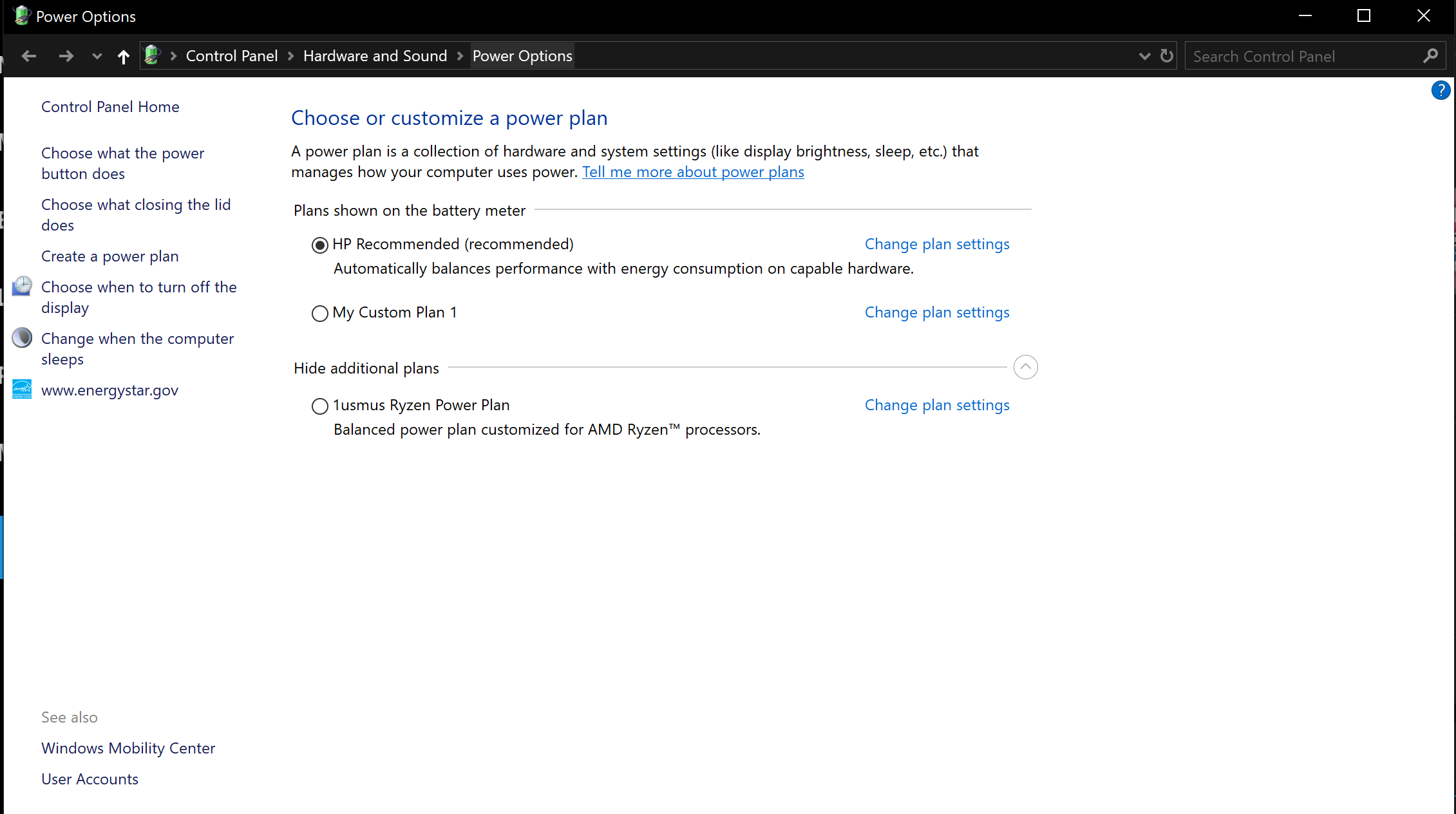New Windows Power Plan Surfaces to Fix AMD Ryzen 3000 Boost Issues
The new power plan promises better performance
Shortly after Ryzen 3000 launched, users and reviewers alike noticed something was amiss with the boost behavior AMD's new CPUs exhibited. In our own testing, we discovered that only a few cores could attain the boost AMD promised, but even by then there was already strong suspicion that something like that was the case. Over a few weeks, a survey was conducted that showed an extremely small amount of Ryzen 3000 users could reach the advertised clock speeds. This prompted AMD to promise microcode and BIOS updates to fix the issue.
But it still seems like these issues haven't been totally fixed, and to that end, the creator of the Ryzen DRAM Calculator, 1usmus, has created a custom Windows power plan to ensure cores boost properly. This is not unlike the Ryzen Balanced plan AMD created in 2017 to fix similar issues with clock speeds and core parking, so it's not hard to imagine that a power plan could fix some of these clock speed issues.
The obvious question is, does it work? Though we haven't conducted our own testing, 1usmus created a very technical overview at TechPowerUp (where you can also download the plan) that describes what the plan does and whether or not it works. His results state that it does, in fact, work, bringing a Ryzen 9 3900X from a 4.4 GHz boost up to its rated 4.6 GHz boost. This clock speed boost mainly comes from the most powerful cores getting pinned more often, something we found that didn't always happen with AMD's current fixes.
However, we should point out that this power plan doesn't even have close to as much validation as the original Ryzen Balanced power plan from AMD, nor anything else developed by AMD. Even if we tested this ourselves, we might not recommend using it in case it does something to your CPU; though it is unlikely that you could damage your CPU with this plan, it's hard to rule out the possibility. The power-saving features, which reduce power consumption and thus heat generation, could also be impacted by 1usmus's power plan.
Ultimately, however, it does seem AMD could do more to tackle the Ryzen 3000 boost clock issues that have lingered since launch. In the future, AMD could attempt to make its power plan with more validation and testing, because it seems like it's a viable solution. However AMD plans to solve this issue; let's just hope it's sooner rather than later.
Get Tom's Hardware's best news and in-depth reviews, straight to your inbox.

Matthew Connatser is a freelancing writer for Tom's Hardware US. He writes articles about CPUs, GPUs, SSDs, and computers in general.
